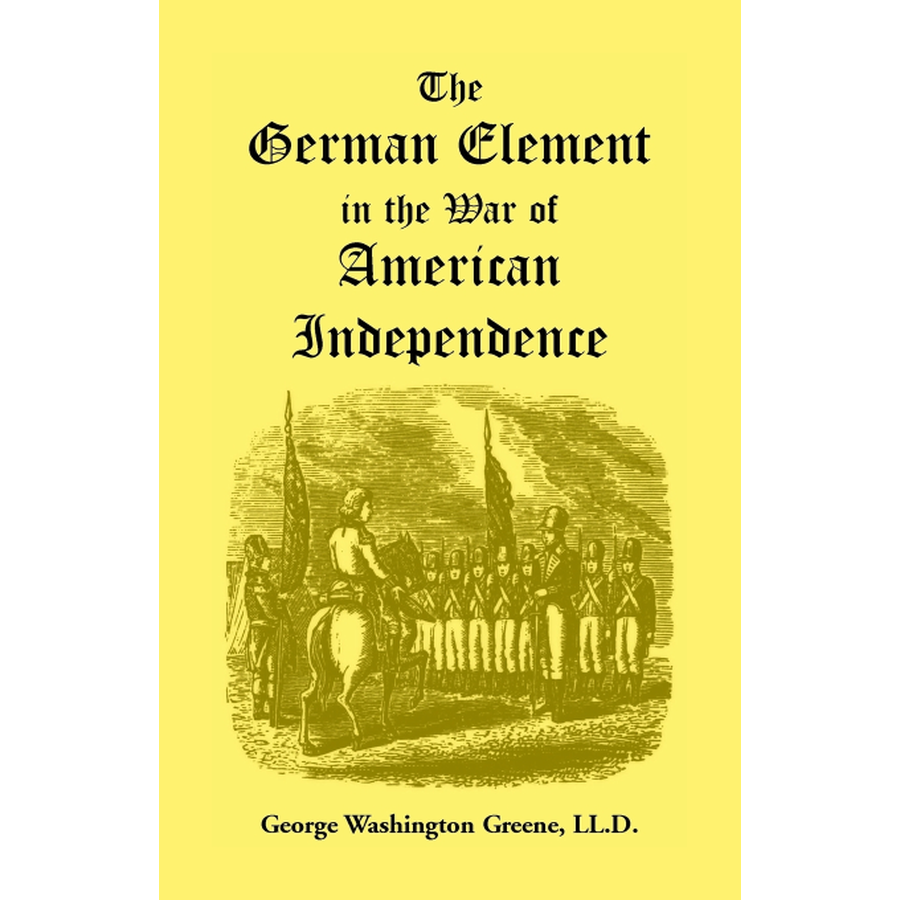The German Element in the War of American Independence
Couldn't load pickup availability
This book will be welcomed by those interested in the Revolutionary War, particularly the part played by Germans, as it provides insight into the German contribution to not only the American effort, but the British effort as well. The book is divided into three parts, entitled: "Baron Von Steuben," General John Kalb," and "German Mercenaries." In the first section we learn about Frederick William Augustus Henry Ferdinand von Steuben, who has been called "the creator of our regular army." He began his military career at age fourteen in the bloody siege of Prague in 1744. In 1777, he was forty-six when he discussed with Benjamin Franklin the possibility of leading American troops. He joined Washington's forces at Valley Forge as a lieutenant general. In a departure from the custom of recruits being drilled by sergeants, Steuben drilled the men personally, and soon wrought a dramatic improvement in skill and morale which may have been the decisive factor in subsequent successes at places such as Monmouth, New Jersey. With the rank of Inspector-General, he authored the "Blue Book" of military regulations, and invented the light infantry. He served valuably in Virginia in the winter of 1780-81, and during the memorable siege of Yorktown.
John Kalb, born a German peasant in 1721, by age twenty-two had convinced his regiment that he was a nobleman named de Kalb, and became a lieutenant in the German infantry in the service of France. In 1768 he arrived at Philadelphia, charged with the mission of keeping France informed of the colonies' efforts toward separation from England. In 1776 he was offered the rank of major general in the colonial forces. Like von Steuben, de Kalb shared in the bleak winter in Valley Forge. The American alliance with France transformed his rank to that of a general in the French army, and from then until 1780 be was constantly with the colonial army, sharing its hardships, finally fighting with General Gates at the American town of Camden against Cornwallis. Three days later, Major General Baron de Kalb died from wounds he had received in the battle.
The third section is an explanation and history of mercenary soldiering, especially as practiced by Germany, where able-bodied young men had much to fear from Prussian recruiters, whose technique of recruiting mercenaries differed little from kidnapping. This part of the book is a fine supplement to the study of the Hessians who fought on the English side, and will be of particular interest to readers of Bruce Burgoyne's works.
George Washington Greene
(1876, 1997), 2012, 5.5" x 8.5", paper, index, 218 pp.
ISBN: 9780788406249
101-G0624

